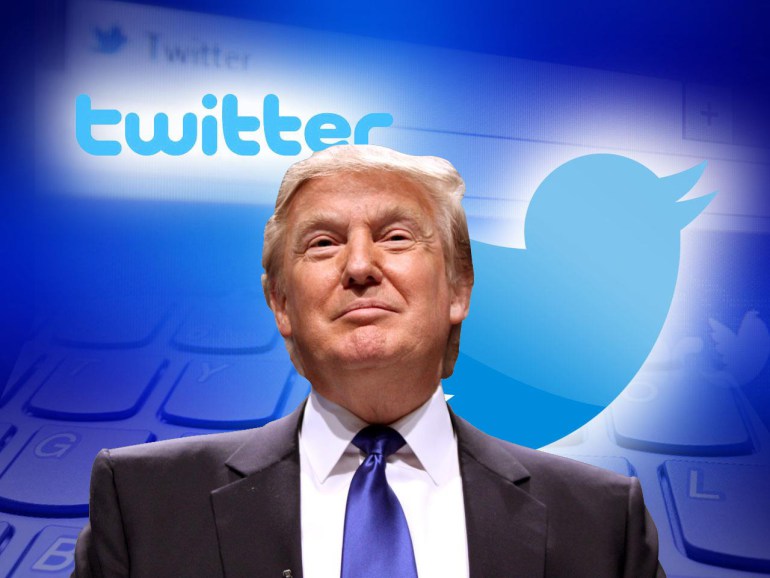Indeed, actions might speak louder than words; however, the fact is, Twitter has managed to invalidate this proverb. Words alone could be influential in enhancing one’s popularity and shaping public perception, and it has been proven by Twitter that seems to have commonly been leveraged by many political leaders and figures to carry out digital diplomacy through a series of microblog posts alone in the platform. According to the latest Twiplomacy study in 2018, 97% of all 193 Member States of the United Nations (UN) are officially present in Twitter – with a total of 951 Twitter accounts belonging to governments, heads of states, and foreign ministers of 187 countries combined. Donald Trump, the current president of the United States, has been the most followed world leader in Twitter with more than 62 million followers, as well as generating more than 200,000 retweets of his tweets despite his controversial remarks.[i] The fact indicates how Twitter has been largely considered as an effective social media platform to communicate and influence their interests to the general public in a feasible way.
To further emphasize, Twitter is also often utilized to enhance one’s electability in presidential elections, such as what Trump has done. Nonetheless, despite its unquestionable effectiveness to generate Trump’s popularity, it could be argued that the use of Twitter for digital diplomacy to widespread political influence could be problematic and ineffective to some extent in terms of furthering United States’ foreign policy objectives and demonstrating the nature of digital diplomacy itself through the creation of a “bandwagon effect”.
Why it is counterproductive to US digital diplomacy
First, while the United States has seemingly wanted to persistently widespread its foreign policy influence to preserve its role as a hegemonic power in the world despite the intensified uncertainties and controversies regarding the international order,[ii] the isolationist traits demonstrated by Trump through his controversial tweets indicate how a distinct contradiction has occurred insofar; thus, as the United States lost its legitimacy worldwide, the structure of the global order could be disintegrated. Twitter has indeed facilitated United States’ public image wanted to be demonstrated by Trump himself regarding the country’s foreign interests despite many opposing views, which would gradually shape the identity of the country per se.
In this case, Twitter has done a great job in facilitating the creation of Trump’s narratives of the United States and his own personal views due to the feasibility of the dissemination in the platform through retweets and likes, in which it would be common to see Trump’s tweets being spread widely all over the users’ timeline. Nonetheless, by taking United States’ longstanding foreign policy goal into consideration, which is to be a global hegemony,[iii] Twitter might not be a suitable and an effective platform to achieve the said objective due to the rapid pace of dissemination yet unfiltered – especially by considering the fact that the one who carries out the “diplomacy” is the president with a non-conformist perspective. Henceforth, its danger for the attainment of United States’ long-term foreign policy goal is unbearable.
Second, the conduct of the proclaimed act of “digital diplomacy” by the United States’ President might be considered as problematic due to the undiplomatic narratives being voiced out frequently. Hence, people’s perception of the nature of digital diplomacy itself could change due to the “bandwagon effect” created by Twitter to disseminate non-conformist opinions. Digital diplomacy itself is widely known as a form of public diplomacy that utilizes social media platforms and digital technologies to communicate with foreign publics in a non-detrimental manner.[iv]
The aforementioned “bandwagon effect” could be interpreted in a way that people would do something if other people are doing it – in this case, as there are more retweets and likes as contextualized forms of agreement toward certain tweets written by Trump, it will be likely that Trump’s controversial claims would be seriously taken into consideration by certain individuals due to the enormous amount of “agreement”. Consequently, instead of communicating to the general public in a non-costly way, this constructed narrative of “digital diplomacy” would undermine the purpose of the act itself, and instead, it would internalize false narratives voiced out by Trump within certain individuals. It is unquestionably easy for Twitter to drive this “bandwagon effect” to occur due to its ability to rapidly disseminate information and news, either true or false.
Trump is destroying his own nation’s image
Although Trump’s – and therefore United States’ – popularity could be easily increased by Twitter, the long-term effects would seemingly not be effective in terms of demonstrating the proclaimed “digital diplomacy”. Besides generating false narratives of the term’s general idea itself, from the domestic level of analysis, the country’s long-established foreign policy objectives – despite the concurring uncertainties recently – would be difficult to be achieved due to the contradictory views with what the state leader himself has demonstrated. To conclude, rapid-disseminating features offered by Twitter would not be useful for the United States alone to carry out digital diplomacy, which would make it in vain – or even disadvantaging for the greater good of the country itself.
Editor: Janitra Haryanto
Read another article written by Felice Valeria
[i] Twiplomacy. (2018). Twiplomacy Study 2018. [online] Available at: https://twiplomacy.com/blog/twiplomacy-study-2018/ [Accessed 31 Jul. 2019].
[ii] Parisot, J. and Jr., S. (2018). US Hegemony and Rising Powers in the Era of Trump. [online] E-International Relations. Available at: https://www.e-ir.info/2018/02/13/us-hegemony-and-rising-powers-in-the-era-of-trump/ [Accessed 31 Jul. 2019].
[iii] XinhuaNet. (2019). Spotlight: U.S. foreign policy leans more to global hegemony than harmony. [online] Available at: http://www.xinhuanet.com/english/2019-05/29/c_138097857.htm [Accessed 31 Jul. 2019].
[iv] Foreign policy in an era of digital diplomacy. (2017). Cogent Social Sciences, [online] 3(1). Available at: https://www.tandfonline.com/doi/full/10.1080/23311886.2017.1297175?scroll=top&needAccess=true [Accessed 31 Jul. 2019].
http://cfds.fisipol.ugm.ac.id/article/450/twitter-untuk-twiplomacy
Twitter Verified A Russian Government Account In Crimea And Ukraine Is Pissed













